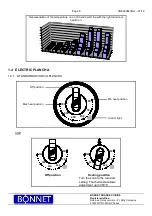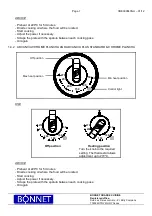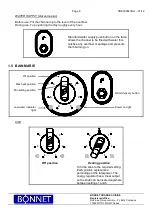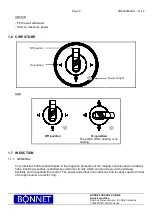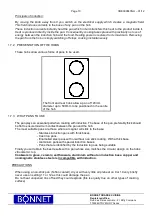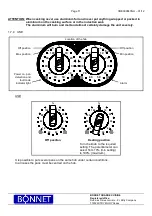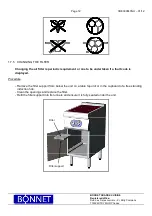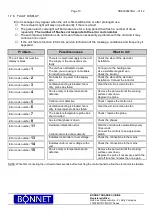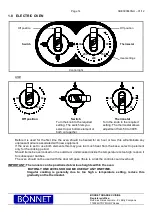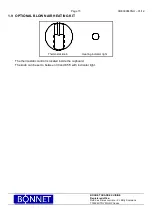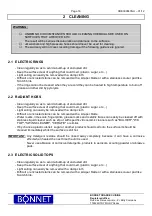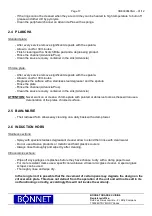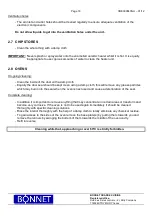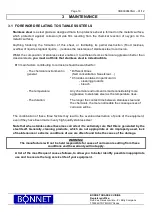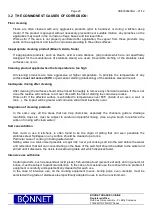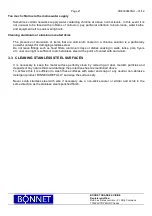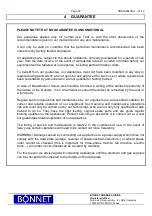
Page 20
3BE390843NU – 01/12
BONNET GRANDE CUISINE
Registered office:
Rue des Frères Lumière - Z.I Mitry Compans
77292 MITRY MORY Cedex
3.2 THE COMMONEST CAUSES OF CORROSION:
Floor cleaning
Floors are often cleaned with very aggressive products (prior to handover or during a kitchen deep
clean). If the product is sprayed, without necessary precautions or suitable dilution, any splashes on the
appliances may result in the corrosion of legs, bases and low level trims.
Worse still, if the area is not properly ventilated after application, the vapour from these products may
settle on the equipment and result in corrosion spreading to the entire surfaces.
Inappropriate cleaning product (Bleach, Acids, Soda)
If inappropriate products, such as bleach, acid or soda dilutions, (all products which are not specifically
designed for the maintenance of stainless steels) are used, irreversible etching of the stainless steel
surfaces can occur.
Cleaning product applied when the temperature is too high
All cleaning products are more aggressive at higher temperature. In principle the temperature of any
surface must not exceed 60°C or permanent staining (blackening) of the stainless steel will result.
Inadequate rinsing after cleaning
After cleaning the surfaces should all be rinsed thoroughly to remove any chemical residues. If this is not
done the residue will continue to act over time with the risk of starting the corrosive process.
Worse still, if the affected surface is submitted to temperatures over 60°C (inside of an oven, a well or
tank,...), the impact will be greater and corrosion will almost inevitably occur.
Stagnation of cleaning products
In the same way, all the areas that can trap chemicals, especially the channels, gutters, drainage
manifolds, traps etc. must be subject to careful and plentiful rinsing. (Use a nylon brush to reinforce the
action of rinsing with clean water).
Salt concentration
Salt, much in use in kitchens, is often found to be the origin of pitting that can even penetrate the
stainless steel. Spillages on any surface should be cleaned up at once.
Particular case of cooking in boiling salted water:
Salting water in a tank or well presents a major risk: never put cooking salt into the well before the water
and remember that salt can concentrating on the base of the well. Salt should be added to the water and
stirred until it dissolves, the risk is reduced using table salt which dissolves faster.
Intensive use with brine
Certain products, such as sauerkraut (acid juices), fish and sea food (presence of salt), and in general, all
brines, must be subject to particular attention. In the case of occasional use there should be no problem if
equipment is carefully and systematically cleaned after each use.
In the case of intensive use, all the cooking equipment (ovens, boiling pans, even utensils) must be
selected with a grade of stainless steel specifically adapted to use in such an environment.

